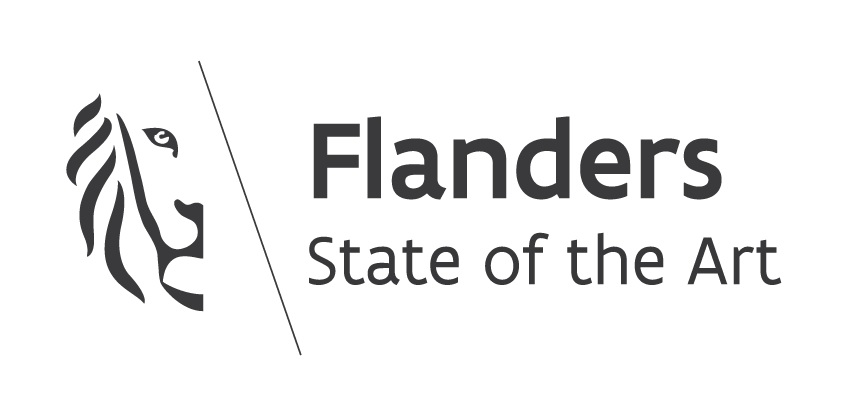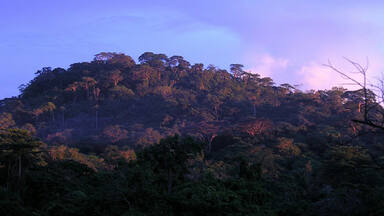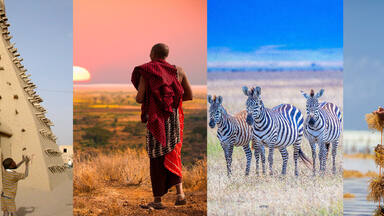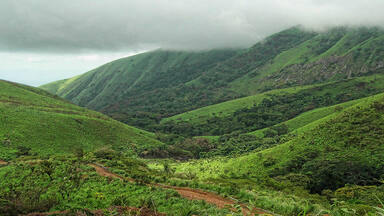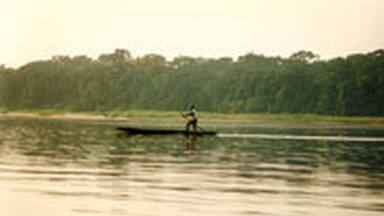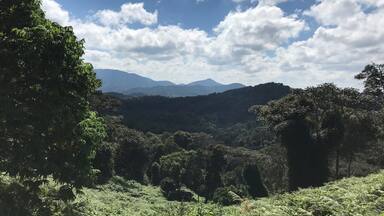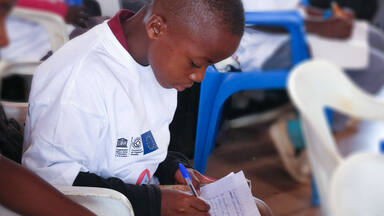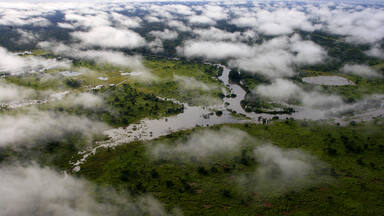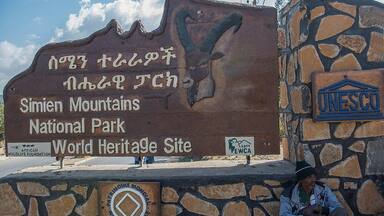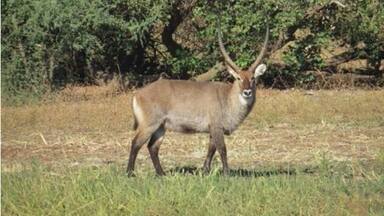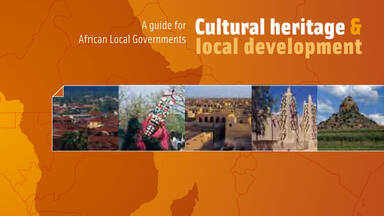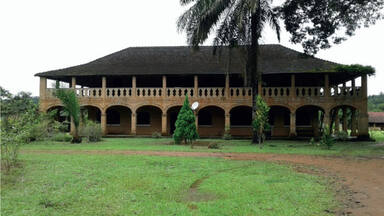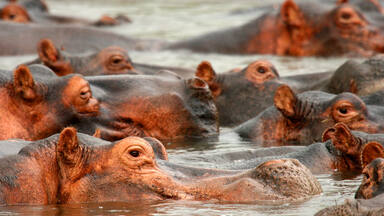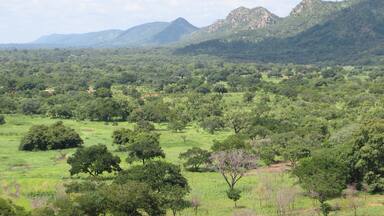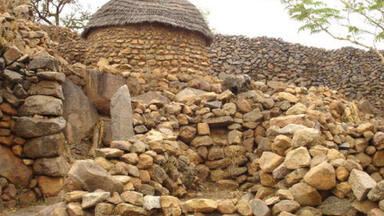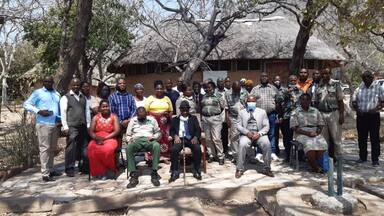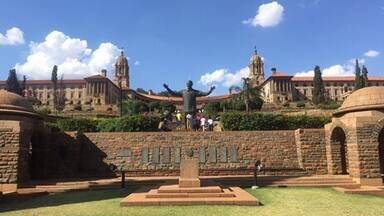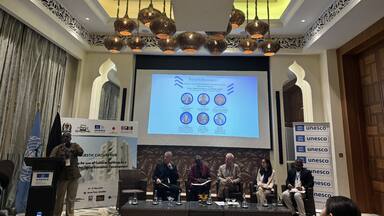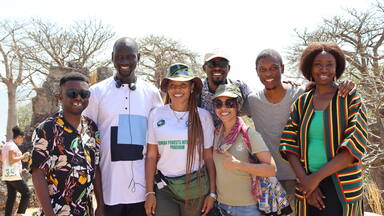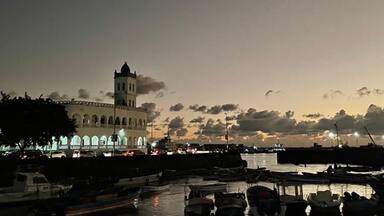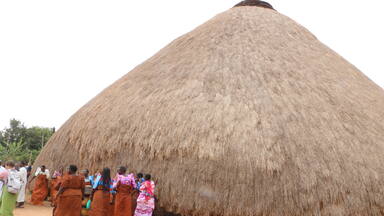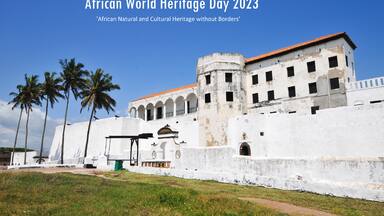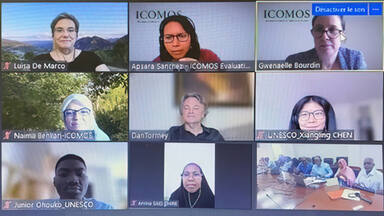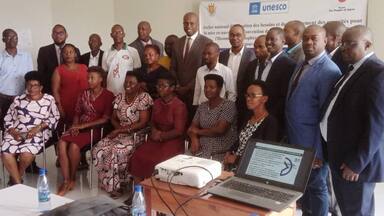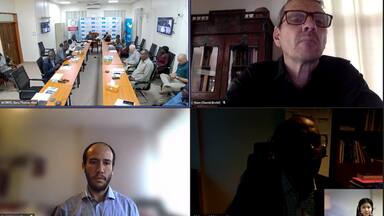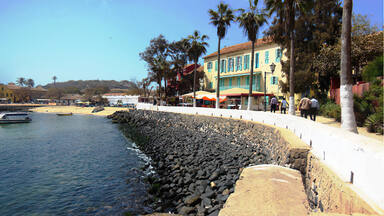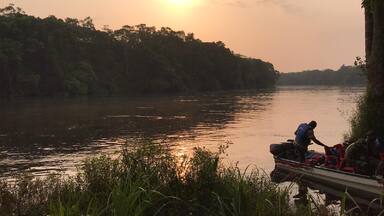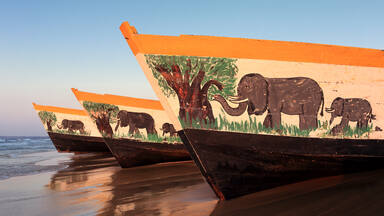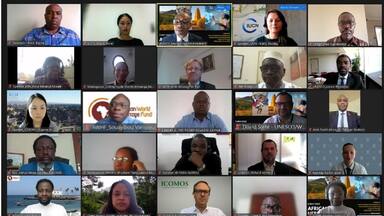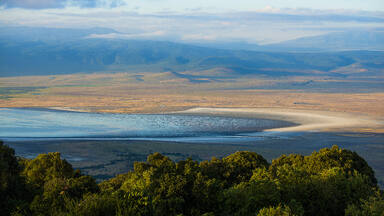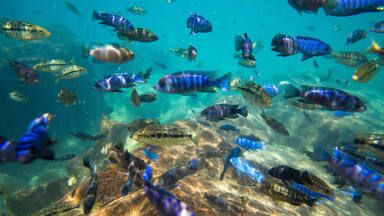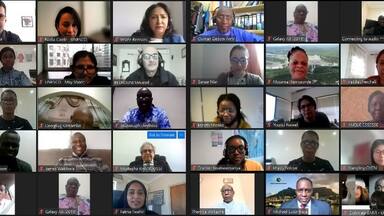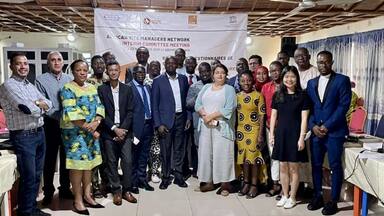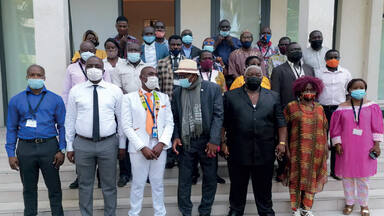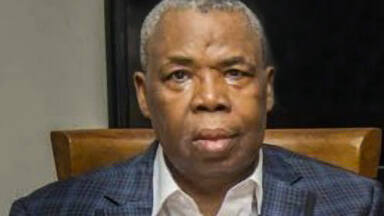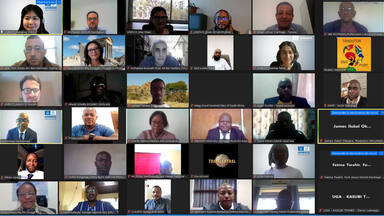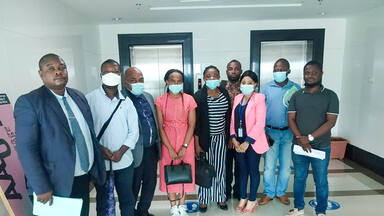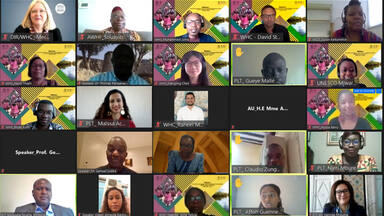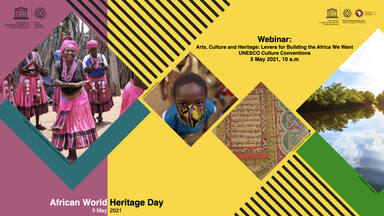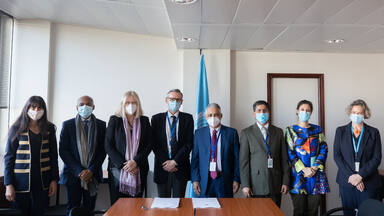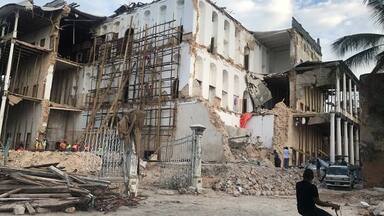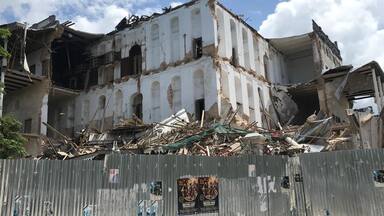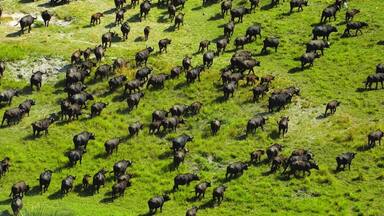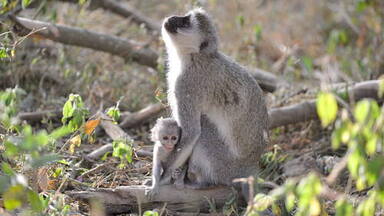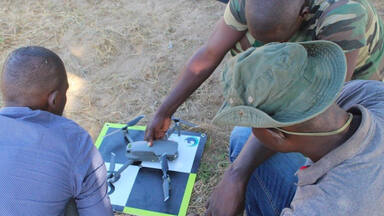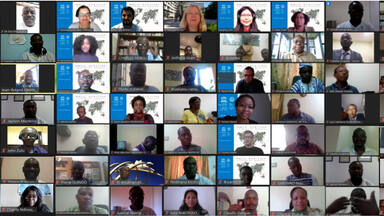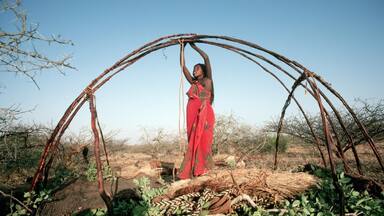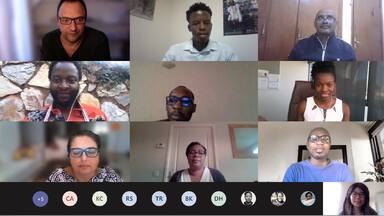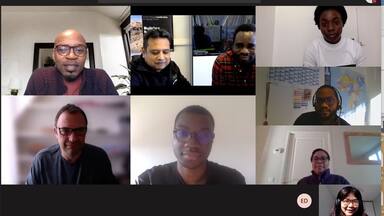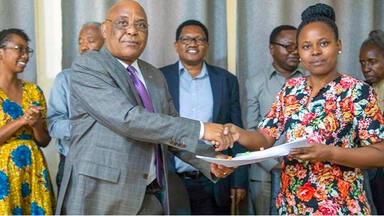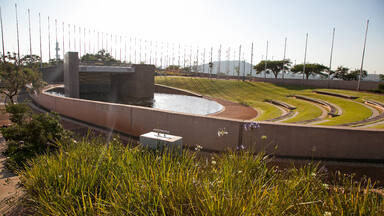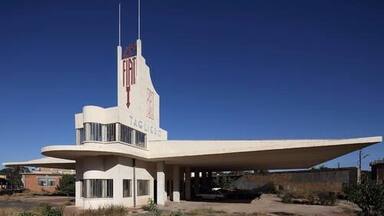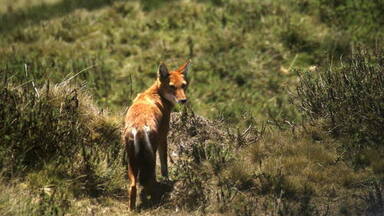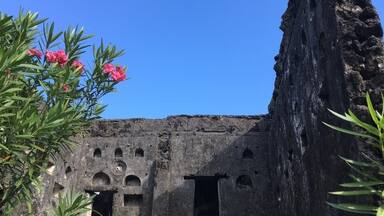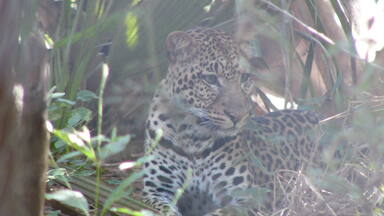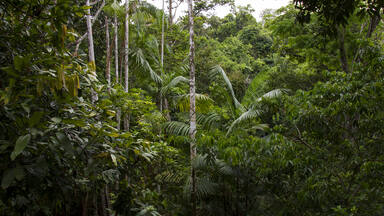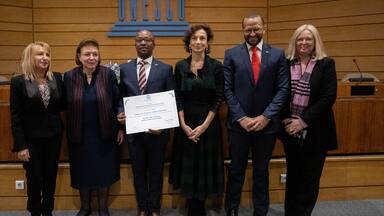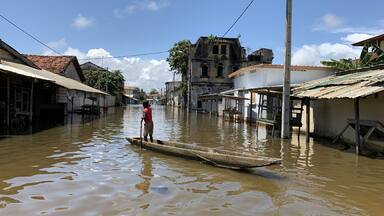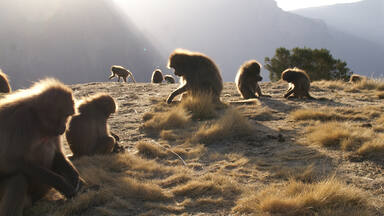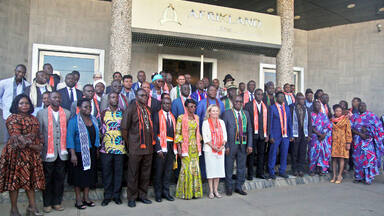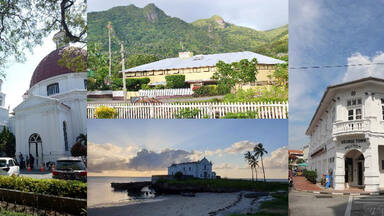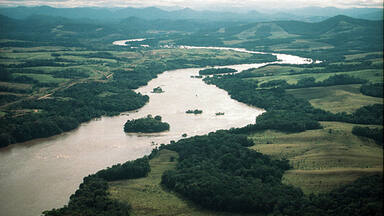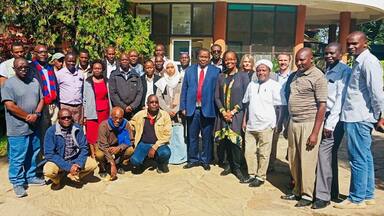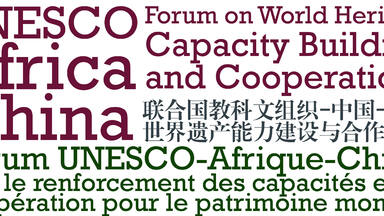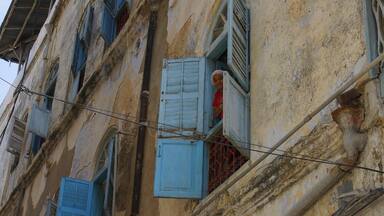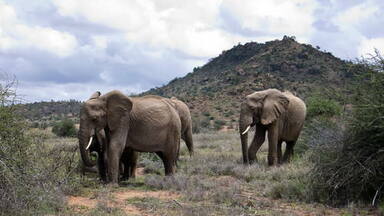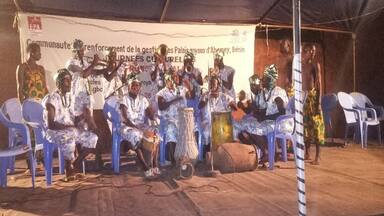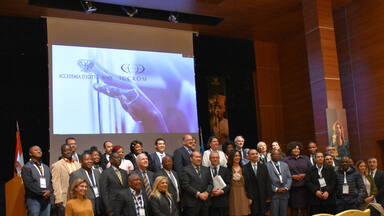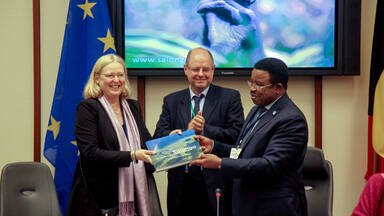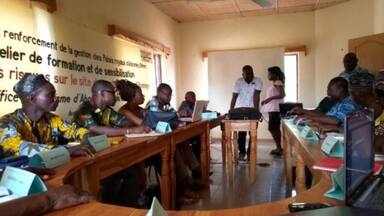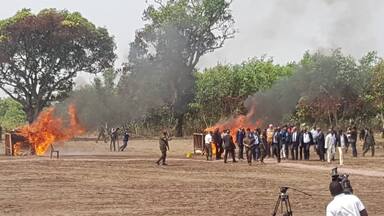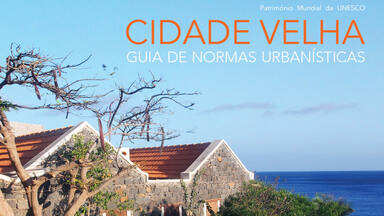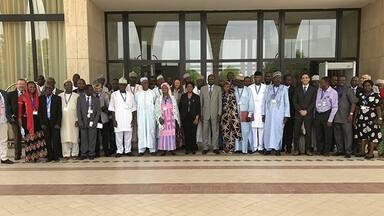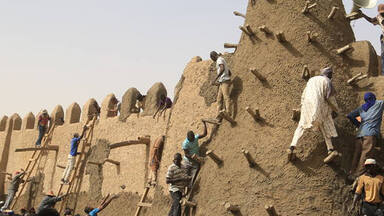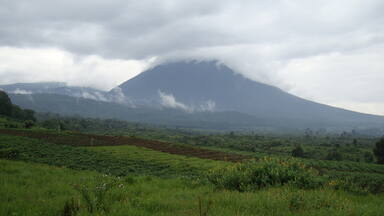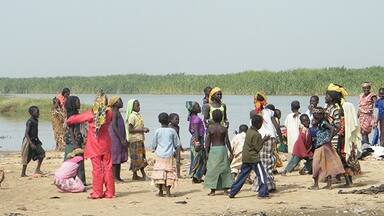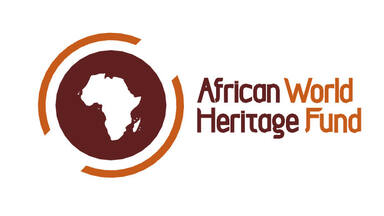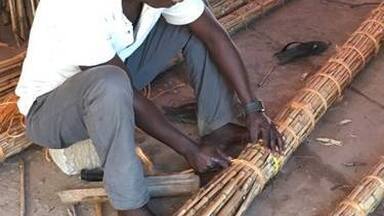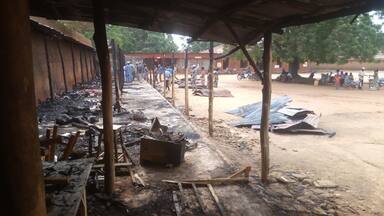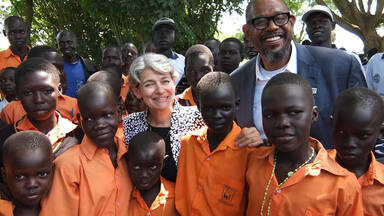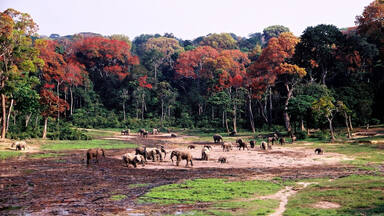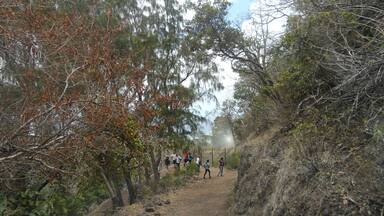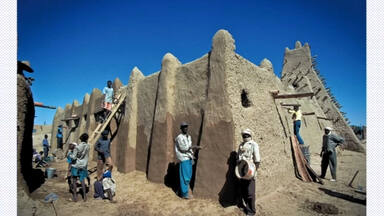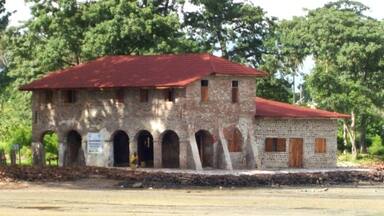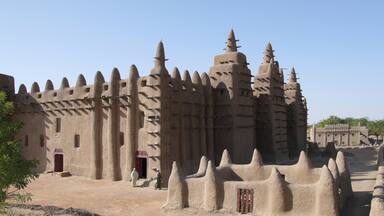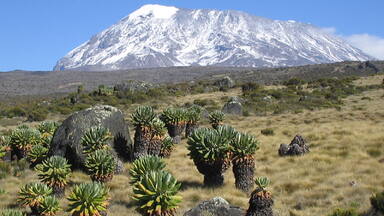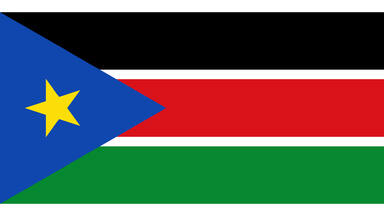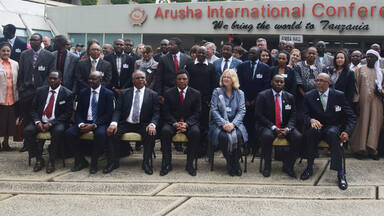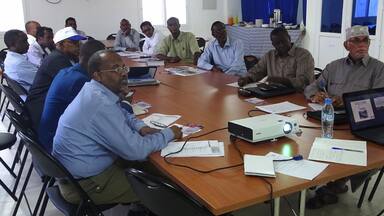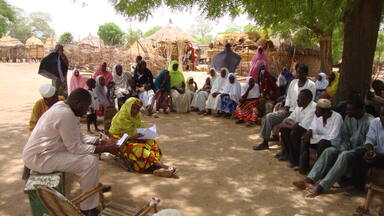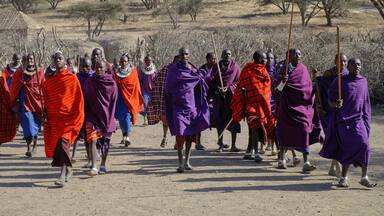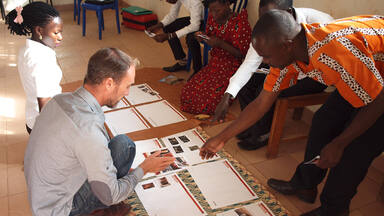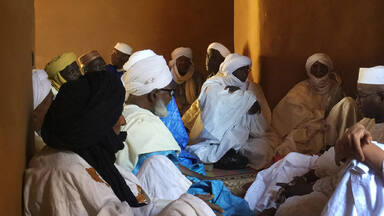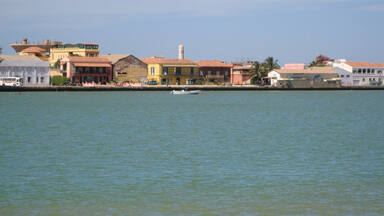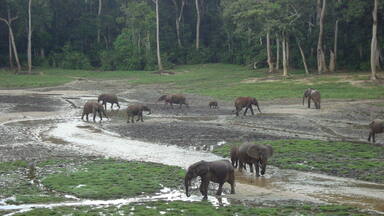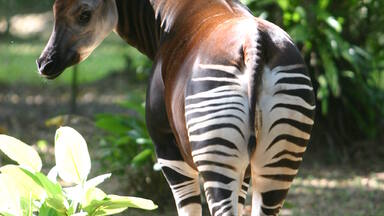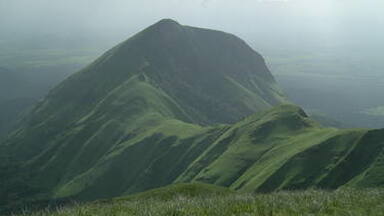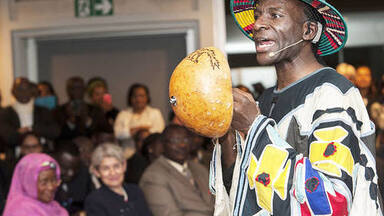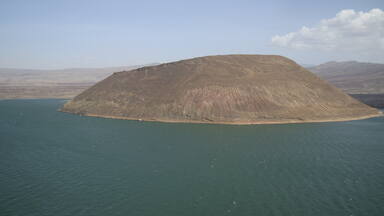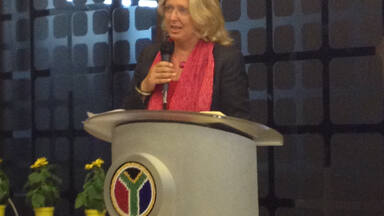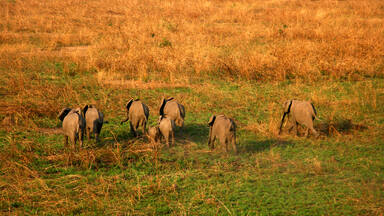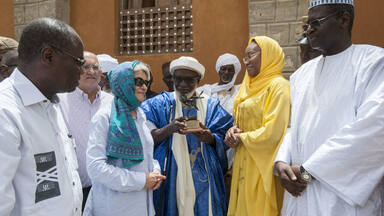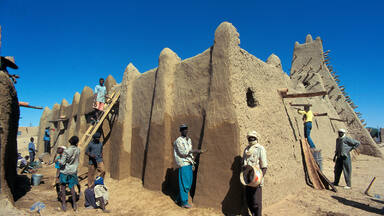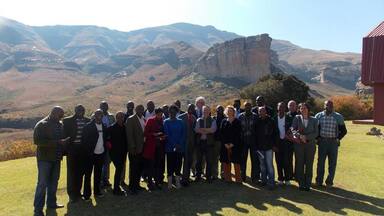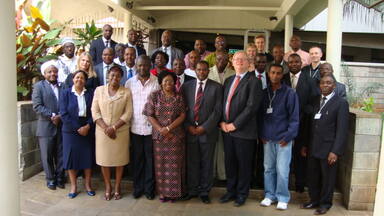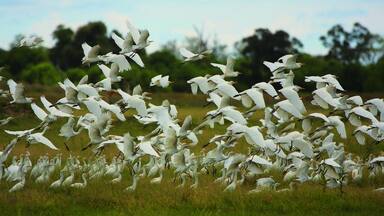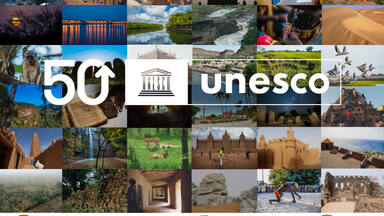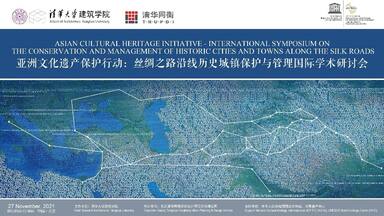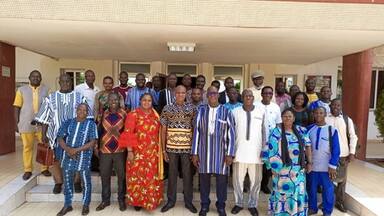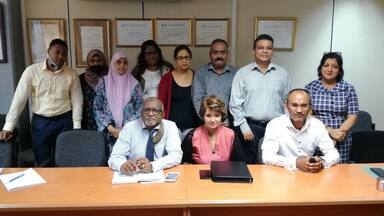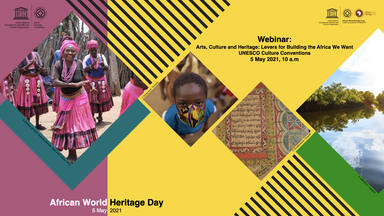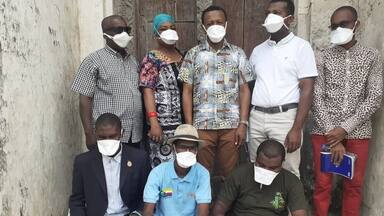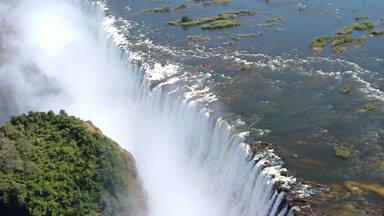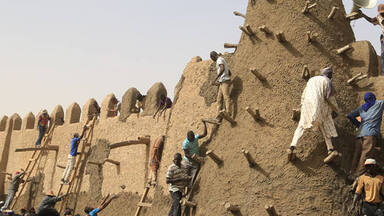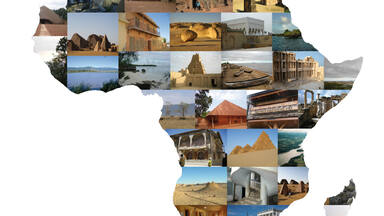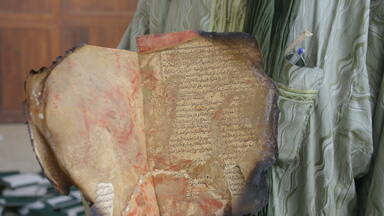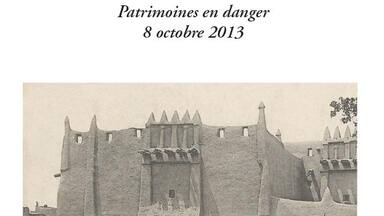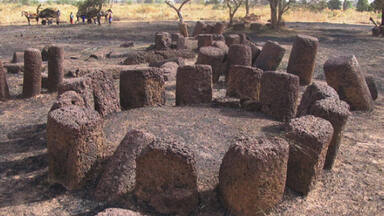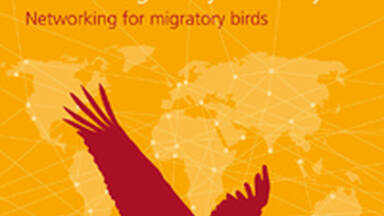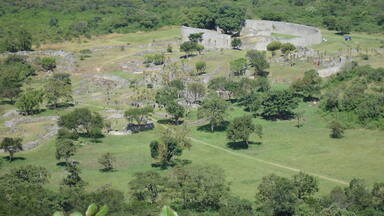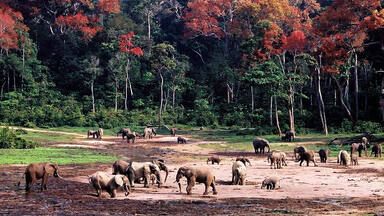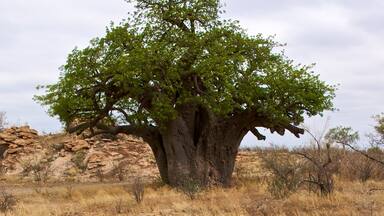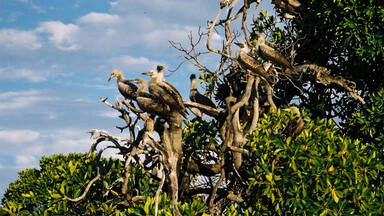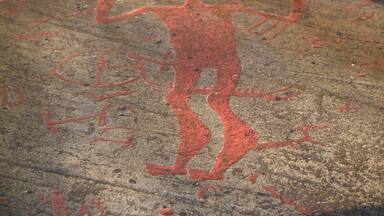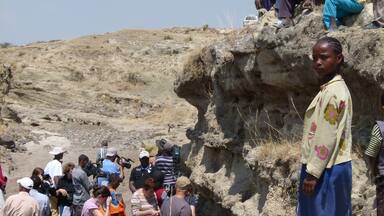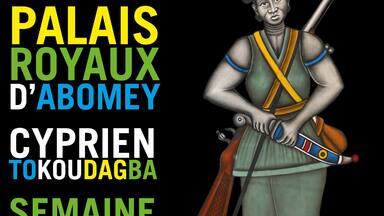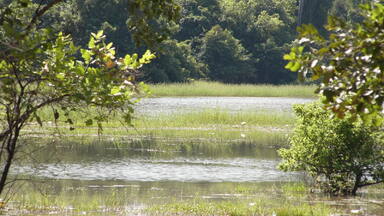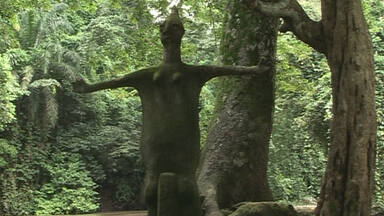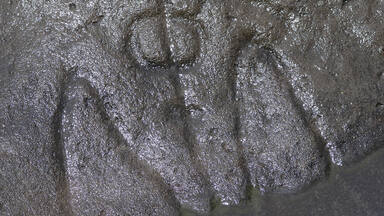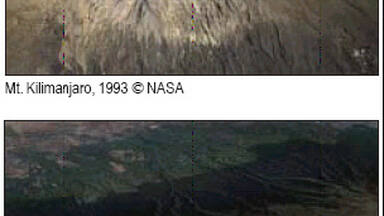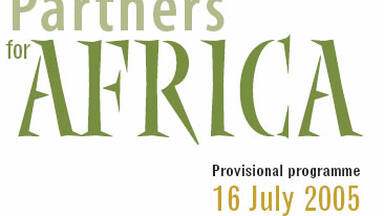Africa is one of UNESCO’s Global Priorities. The African Renaissance is underway, with the adoption of the African Union Agenda 2063 and the 2030 Agenda for Sustainable Development paving the ground for the African development.
Cultural Properties
Mixed Properties
Natural Properties
Transboundary properties
Properties in Danger
Periodic Reporting
Third Cycle
The World Heritage Committee, at its 41st session (Krakow, 2017), declared in Decision 41 COM 10A, the start of the Third Cycle of Periodic Reporting in the Africa region, in accordance with Article 29 of the 1972 Convention Concerning the Protection of the World Cultural and Natural Heritage. The Third Cycle of Periodic Reporting exercise in the Region involved African States Parties to the Convention and the World Heritage properties inscribed on the World Heritage List, including the sites inscribed by the Committee at its the 43rd session in Baku, Azerbaijan in July 2019.
The reporting exercise took place from September 2019 to July 2020 and 46 African States Parties to the Convention, of which 35 have 96 World Heritage properties inscribed on the World Heritage List, answered an online questionnaire. Several workshops have been organized to facilitate the filling and analysis of the questionnaires. A draft Report and draft Action Plan have been prepared and finalized with all African National Focal Points. The two documents were submitted at the extended 44th session of the World Heritage Committee and were adopted subsequently.
© UNESCO / Xiangling Chen
Cycle 2
![]()
Main results
Africa Region
English Français
Synthesis and analysis of the Second Cycle of Periodic Reporting in Africa submitted in accordance with Decision 33 COM 11.C
Read moreCycle 1
![]()
Main results
Africa Region
English Français
Conclusions and recommendations of the synthesis Report on the state of conservation of the World Heritage in Africa, submitted.
Read moreConservation and nomination
The Africa region has currently 98 properties inscribed on the World Heritage List, including 54 cultural properties, 39 natural properties and 5 mixed properties.
Conservation of UNESCO World Heritage in the Africa region is continuously monitored by the Reactive Monitoring mechanism. There are 15 properties are inscribed on the List in Danger. While working to ensure the conservation of all inscribed properties, the Africa unit is working to develop the Desired state of conservation for the removal (DSOCR) for these properties for their eventual removals from the List in Danger.
As the Africa region represents only 9% of the World Heritage List, the Africa unit is also working closely with partners and the African World Heritage Fund (AWHF) to increase the number of sites nominated on the World Heritage List from the Africa region.
Conservation
UNESCO and Zanzibar to cooperate in rehabilitation of Stone Town of Zanzibar World Heritage property
Norway supports animal surveillance in Pendjari and W National Parks (Benin)
Supporting biodiversity and sustainable livelihoods in Lake Malawi National Park (NFIT)
UNESCO and ALIPH to rehabilitate Mali’s Bandiagara World Heritage site and support conflict-affected communities
UNESCO grants emergency funds for reconstruction of infrastructure destroyed after floods and landslides in Rwenzori Mountains
Safeguarding the Endangered Mountain Gorilla during COVID-19 Crisis
Emergency response to tragic attack in Virunga National Park
Nomination
Supporting Capacity-building for Nomination Projects and Promotion of World Heritage Sites in East Africa region
Support to the States Parties of Benin and Togo for the preparation of the nomination dossier of Koutammakou, the Land of the Batammariba as a trans-boundary site (China funded)
Finalization of te mapping and update of the management plan for the nomination dossier for Zakouma National Park on the World Heritage List (China funded)
Desired State of conservation for the removal of a property from the List of World Heritage Danger (DSOCR)
Project to support the Mount Nimba Strict Nature Reserve (Côte d'Ivoire/Guinea) for the empowerment of local communities and the finalization of the Desired State of conservation for the removal of a property from the List of World Heritage Danger (DSCOR) – to be put online
Capacity Development
In the period of transition toward the new Regional Action Plan to be approved during the 44th extended session of the World Heritage Committee, the Africa Unit of the World Heritage Centre developed a strategic action plan for capacity development in five key areas, namely: (i) Youth & Inclusiveness; (ii) Site Managers & Outreach; (iii) Training and Education Institutions; (iv) Experts and Civil Society; and (v) Institutions and Advocacy. The aim is to anchor the ongoing efforts to implement the 1972 Convention and at the same time to develop favourable conditions for the implementation of the new Regional Action Plan.
Youth
& Inclusiveness
The activities will target the children and youth of Africa for them to better understand World Heritage and the 1972 Convention, and to be more involved in the activities related to the implementation of the Convention. Following the experiences of other regions, WHC-AFR will work very closely under UNESCO’s network of youth in the Education Sector.
Site Managers
& Outreach
The activities will support African site managers to create a strong network for sharing experiences and enhancing peer learning, especially to empower them with tools to reach local communities. There will be an emphasis on outreach in order to help site managers to better engage more local communities and civil society in the conservation and management of African sites.
African Site Managers Network: members of the Interim Committee elected
Training and Education Institution
The activities will support the training and education institutions to develop a strong curriculum and network of education facilities and programmes on conservation and heritage management in Africa. The network of UNESCO chairs in Africa will be capitalised for the benefit of the 1972 Convention.
Experts
and Civil Society
The activities will support and mentor young experts for them to excel and work with the 1972 Convention. A new initiative will be promoted to groom young experts and facilitate intergenerational knowledge-sharing in the region.
Institutions
and Advocacy
The activities will support States Parties in their efforts to empower local institutions to maintain continuity and institutional capacity with regards to the 1972 Convention. In view of an effective implementation of the 1972 Convention, the States Parties and local authorities will be better informed and further supported to capitalise on the resources of the AWHF, Advisory Bodies and other UNESCO partner networks of professionals.
Sustainable Development
In November 2015, the General Assembly of States Parties to the UNESCO World Heritage Convention adopted, by Resolution 20 GA 13, the Policy Document for the Integration of a Sustainable Development Perspective into the processes of the World Heritage Convention.
Subsequently, the World Heritage Committee by Decision 40 COM 5C welcomed its adoption and reiterated the need to achieve appropriate balance and integration between the protection of the Outstanding Universal Value (OUV) of World Heritage properties and the pursuit of sustainable development objectives and called upon States Parties to ensure that sustainable development principles are mainstreamed into national processes related to World Heritage, in full respect of the Outstanding Universal Value of World Heritage sites.
Climate change and Risk management
Disaster and risk management and protection systems for World Heritage sites in Africa
Disaster Risk Reduction (DRR) for the Island of Mozambique through Knowledge Sharing with the Asia-Pacific Heritage Cities
Communication and promotion
African World Heritage Day
Proclaimed by the 38th session of the General Conference of UNESCO (November 2015), African World Heritage Day (5 May) is an opportunity for people around the world, and particularly Africans, to celebrate the Continent’s unique cultural and natural heritage
Decisions (11)
The World Heritage Committee,
- Having examined Document WHC/23/45.COM/10C,
- Recalling Decision 44 COM 10B adopted at its extended 44th session (Fuzhou/Online, 2021),
- Welcomes the progress made in the follow-up of the implementation of the Third Cycle of Periodic Reporting Action Plan in the Africa region (2021-2027);
- Expresses its appreciation to the African World Heritage Fund for its follow-up on the implementation of the Action Plan for Africa (2021-2027);
- Notes with appreciation the financial contribution of the Governments of China, France, Japan, the Netherlands, Norway, Switzerland and the Sultanate of Oman, to the activities carried out in the framework of the implementation of the Action Plan 2021-2027 for the Africa region;
- Calls upon States Parties to financially and technically support the implementation of the Regional Action Plan for the Africa Region through follow-up activities with the UNESCO World Heritage Centre, the Advisory Bodies, the École du patrimoine mondial africain and the African World Heritage Fund;
- Takes note with satisfaction of the creation of the African Site Managers Network, working to develop a network of African universities and five centres of excellence in each of the five subregions to empower local experts and better institutionalise capacity development in implementing the World Heritage Convention in Africa and, notably, in synergy with the other UNESCO Culture Conventions;
- Requests the UNESCO World Heritage Centre, in collaboration with the Advisory Bodies, the African World Heritage Fund and with the support of States Parties, to continue its efforts to coordinate and implement the Regional Capacity Building Programme according to the Action Plan 2021-2027;
- Acknowledges with appreciation that the Strategy for World Heritage in Africa was informed by an inclusive consultation process, which included the seven Arab States located in the African Continent, and that it is aligned with the regional Action Plans for Africa and the Arab States;
- Also acknowledges with appreciation that the outcomes of the UNESCO World Conference on Cultural Policies and Sustainable Development – MONDIACULT 2022 (Mexico City, 2022), and the reflections undertaken at the international conference The Next 50 - The Future of World Heritage in Challenging Times, Enhancing Resilience and Sustainability (Delphi, 2022), as well as the Yaoundé Call to Action adopted at the Sub-Regional Celebration of the 50th Anniversary of the UNESCO World Heritage Convention in Central Africa (Yaoundé, 2022) have been taken into consideration in the implementation of activities carried out thereafter;
- Further reminds States Parties of the Africa region, which have not already done so, to submit their Retrospective Statements of Outstanding Universal Value by 1 February 2024 at the latest, as well as clarifications of boundaries by 1 December 2023 at the latest;
- Reiterates its request to the UNESCO World Heritage Centre to monitor the implementation of the Regional Action Plan, in collaboration with the African World Heritage Fund, in view of preparing a mid-cycle assessment report to be presented to the World Heritage Committee at its 46th session.
The World Heritage Committee,
- Having examined Document WHC/19/43.COM/10A,
- Recalling Decision 41 COM 10B.2 adopted at its 41st session (Krakow, 2017),
- Welcomes the progress made in the follow-up of the Second Cycle of Periodic Reporting in the Africa region;
- Thanks the Governments of China, Flanders (Belgium), the Netherlands, Hungary, Norway, the European Union and the African World Heritage Fund for their contributions towards supporting follow-up activities to the Second Cycle of Periodic Reporting in Africa;
- Commends the States Parties of the Africa Region who have been actively implementing the Action Plan, and encourages States Parties, which have not already done so, to establish their National World Heritage Committees and to develop their National Action Plans and Budgets;
- Calls upon States Parties to continue to support financially and technically the implementation of the Action Plan for the Africa region through follow-up activities in cooperation with the World Heritage Centre, the Advisory Bodies and the African World Heritage Fund (AWHF), including through the African World Heritage Day in fostering support for the Action Plan for the Africa region;
- Further reminds States Parties who have not already done so, to submit their Retrospective Statements of Outstanding Universal Value by 1 February 2020 at the latest, as well as clarifications of boundaries by 1 December 2019 at the latest;
- Notes with appreciation the follow-up activities to the Ngorongoro Declaration, and also commends the World Heritage Centre for addressing the urgent need to build African capacities in a sustainable way through the involvement of African educational institutions in the implementation of the World Heritage Convention and sustainable development as well as the AWHF, the World Heritage Centre and the Advisory Bodies and their partners, for the continued implementation of the World Heritage nomination support programme in Africa;
- Requests the World Heritage Centre, in collaboration with the Advisory Bodies, the AWHF, and with the support of States Parties, to continue its efforts to coordinate and implement the Regional Capacity-Building Programme according to the Action Plan 2012-2017;
- Also requests the World Heritage Centre to present a progress report on the implementation of the Action Plan for the second cycle of Periodic Reporting for the Africa region at its 45th session, in 2021.
The World Heritage Committee,
- Having examined Document WHC/17/41.COM/10A,
- Recalling Decisions 38 COM 5F.2, 39 COM 10B.5, and 40 COM 10A, adopted at its 38th (Doha, 2014), 39th (Bonn, 2015) and 40th (Istanbul/UNESCO, 2016) sessions respectively,
- Notes with appreciation the successful implementation of the Reflection Period by the Secretariat, in consultation with the Advisory Bodies, and the use of innovative and cost-effective working methods;
- Commends the Periodic Reporting Reflection Expert Group for the extensive and in-depth work carried out;
- Thanks all States Parties who volunteered to participate in the Testing Phase for their active engagement in the Periodic Reporting Reflection;
- Welcomes the recommendations and improvements proposed with regard to the format, content, relevance, analysis and use of data in the Periodic Reporting process;
- Also welcomes the inclusion in the revised questionnaire of questions relating to synergies with other international instruments and programmes on cultural and natural heritage; questions relating to the implementation of the 1972 UNESCO Recommendation concerning the Protection, at National level, of the Cultural and Natural Heritage and to the 2011 Recommendation on the Historic Urban Landscape, as well as questions assessing the implementation of the World Heritage Policy for integrating a sustainable development perspective into the processes of the World Heritage Convention, and of other key policies adopted by the World Heritage Committee;
- Further welcomes the development of strengthened and comprehensive indicators to improve follow-up on progress made by State Parties in the implementation of the Convention as well as the 1972 Recommendation concerning the Protection, at National Level, of the Cultural and Natural Heritage, further to the Recommendation of the Evaluation of UNESCO’s Standard-Setting Work of the Culture Sector (Part III – 1972 Convention Concerning the Protection of the World Cultural and Natural Heritage);
- Takes note with appreciation of the analytical framework developed by the Expert Group and decides that it will be used as a global template for the analysis of data, for all regions, during the Third Cycle of Periodic Reporting;
- Also takes note of the feasibility study concerning the production of a global World Heritage report and recommends that further work on the format and resourcing of the report be carried out using responses from States Parties and Site Managers in the first years of the Third Cycle;
- Also decides to maintain the order of regions and the 6-year periodicity of the Periodic Reporting cycles, with one region reporting every year (Arab States, Africa, Asia and the Pacific, Latin America and the Caribbean, Europe and North America) and one year between cycles for a reflection, if necessary, and for the production of a global report on the basis of the outcomes of the cycle across all regions;
- Further decides to officially launch the Third Cycle (2017-2022), but in view of the need to allow sufficient time for appropriate preparation, by the Secretariat, and by the States Parties of the Arab States region, exceptionally postpones the start of the Periodic Reporting of all regions by one year, starting with the Arab States region in 2018, followed by the Africa region in 2019, and so on;
- Encourages the active engagement of the States Parties in the following reporting cycles, and furthermore decides, that, in view of the current financial and human resources constraints of the World Heritage Centre, its role should consist of ensuring a holistic approach across regions, by providing overall coordination, guidance tools and analysis, as well as facilitating a State Party-driven approach, and invites the States Parties to contribute extrabudgetary resources for this purpose, and further decides, in case the resources are insufficient to ensure continuity, to supplement the funding of an extra-budgetary position from the Periodic Reporting budget line in the World Heritage Fund;
- Approves the revised Chapter V of the Operational Guidelines “Periodic Reporting on the Implementation of the World Heritage Convention” and the revised Annex 7 to the Operational Guidelines, on the Format of the Periodic Reporting Questionnaire, contained in Annex IV of Document WHC/17/41.COM/10A.
The World Heritage Committee,
- Having examined Document WHC/16/40.COM/10B,
- Recalling Decisions 36 COM 10A, 37 COM 10C.2, 38 COM 10B.2 and 39 COM 10B.2 adopted at its 36th (Saint Petersburg, 2012), 37th (Phnom-Penh, 2013), 38th (Doha, 2014) and 39th (Bonn, 2015) sessions respectively,
- Welcomes the progress made in the follow-up of the second cycle of Periodic Reporting in the Africa Region, while expressing its concerns regarding the relatively weak implementation rate of the Regional Action Plan by African States Parties;
- Notes with appreciation the financial contribution of the Governments of Norway, Flanders (Belgium), Spain, South Africa, the Netherlands, the People’s Republic of China, Burkina Faso, the European Union, as well as IUCN, the UNDP/GEF Small Grants Programme, , the African World Heritage Fund and the host countries of all capacity-building workshops towards activities carried out in the framework of the implementation of the Action Plan for the Africa region and its regional capacity-building programme;
- Calls upon States Parties to financially and technically support the implementation of the Action Plan for the Africa region through follow-up activities with the World Heritage Centre, the Advisory Bodies and the African World Heritage Fund; and to take advantage of the annual mobilization of the African World Heritage Day on 5 May in fostering support for the Action Plan for the Africa region;
- Commends the States Parties of the Africa Region who have been actively implementing the Action Plan; and requests States Parties, who have not already done so, to establish their National World Heritage Committees and to develop their National Action Plans and Budgets, as well as to inform the World Heritage Centre when they are operational;
- Further reminds States Parties which have not already done so to submit their Retrospective Statements of Outstanding Universal Value by 1 February 2017 at the latest, as well as clarifications of boundaries by 1 December 2016 at the latest;
- Notes with appreciation the Ngorongoro Declaration, and also commends the World Heritage Centre and the African World Heritage Fund for organizing the travelling exhibitions “African World Heritage: a pathway for development” and “African Heritage under Threat” to enhance awareness raising;
- Takes note of the capacity building activities implemented in April-May 2016 in the framework of the commemoration of the 10th anniversary of the African World Heritage Fund including the Youth Forum on “Youth and World Heritage in Africa” implemented in partnership with the World Heritage Centre and the Robben Island World Heritage property in South Africa;
- Requests the World Heritage Centre, in collaboration with the Advisory Bodies, the African World Heritage Fund and the regional capacity building organizations and with the support of States Parties, to continue its efforts to coordinate and implement the Regional Capacity-Building Programme according to the Action Plan 2012-2017;
- Also requests the States Parties, in consultation with the World Heritage Centre and the Advisory Bodies, to pay special attention to the management of properties inscribed on the List of World Heritage in Danger;
- Further requests the World Heritage Centre to present a progress report on the implementation of the Action Plan for the Africa Region at its 41st session in 2017.
The World Heritage Committee,
- Having examined Document WHC-15/39.COM/10B,
- Recalling Decision 36 COM 10A, Decision 37 COM 10C.2 and Decision 38 COM 10B.2 adopted at its 36th session (Saint Petersburg, 2012), 37th session (Phnom-Penh, 2013) and 38th session (Doha, 2014) respectively;
- Welcomes the progress made in the follow-up of the second cycle of Periodic Reporting in the Africa Region, while expressing its concerns regarding the weak implementation rate of the regional Action Plan by African States Parties;
- Notes with appreciation the financial contribution of the Governments of Norway, Flanders (Belgium), Spain, South Africa and the Netherlands, IUCN, the UNDP/GEF Small Grants Programme, the MAVA Foundation, the African World Heritage Fund (AWHF) as well as the host countries of all capacity-building workshops to activities carried out in the framework of the implementation of the Action Plan for the Africa Region and its regional capacity-building programme;
- Calls upon States Parties to financially and technically support the implementation of the Regional Action Plan for the Africa Region through follow-up activities with the World Heritage Centre, the Advisory Bodies and the African World Heritage Fund;
- Commends the States Parties of the Africa Region who have been actively implementing the Action Plan; and requests States Parties, who have not already done so, to establish their National World Heritage Committees and to develop their National Action Plans and Budgets, as well as to inform the World Heritage Centre when they are operational;
- Further reminds States Parties which have not already done so to submit their Retrospective Statements of Outstanding Universal Value by 1 February 2016 at the latest, as well as clarifications of boundaries by 1 December 2015 at the latest;
- Also requests the World Heritage Centre, in collaboration with the Advisory Bodies, and with the support of States Parties, to continue its efforts to coordinate and implement the Regional Capacity-Building Programme according to the Action Plan 2012 – 2017;
- Further requests the States Parties, in consultation with the World Heritage Centre and the Advisory Bodies, to pay special attention to the management of properties inscribed on the List of World Heritage in Danger;
- Furthermore requests the World Heritage Centre to present a progress report on the implementation of the Action Plan for the Africa Region at its 40th session in 2016.
The World Heritage Committee,
- Having examined Document WHC-14/38.COM/8E,
- Congratulates the States Parties for the excellent work accomplished in the elaboration of retrospective Statements of Outstanding Universal Value for World Heritage properties in their territories;
- Adopts the retrospective Statements of Outstanding Universal Value, as presented in the Annex of Document WHC-14/38.COM/8E, for the following World Heritage properties:
- China: Wulingyuan Scenic and Historic Interest Area;
- Japan: Gusuku Sites and Related Properties of the Kingdom of Ryukyu; Historic Monuments of Ancient Nara; Historic Villages of Shirakawa-go and Gokayama; The Hiroshima Peace Memorial (Genbaku Dome);
- Sri Lanka: Sinharaja Forest;
- Vietnam: Hoi An Ancient Town; Complex of Hué Monuments;
EUROPE AND NORTH AMERICA:
- Albania: Butrint;
- Armenia: Monastery of Geghard and the Upper Azat Valley;
- Austria: Semmering Railway; Wachau Cultural Landscape;
- Azerbaijan: Walled City of Baku with the Shirvanshah's Palace and Maiden Tower;
- Belarus / Estonia / Finland / Latvia / Lithuania / Moldova / Norway / Russian Federation / Sweden / Ukraine: Struve Geodetic Arc;
- Belgium: Major Town Houses of the Architect Victor Horta (Brussels); Neolithic Flint Mines at Spiennes (Mons); Notre-Dame Cathedral in Tournai; Plantin-Moretus House-Workshops-Museum Complex;
- Bosnia and Herzegovina: Old Bridge Area of the Old City of Mostar;
- Cyprus: Paphos;
- Denmark: Ilulissat Icefjord;
- Finland: Bronze Age Burial Site of Sammallahdenmäki; Fortress of Suomenlinna; Old Rauma; Petäjävesi Old Church; Verla Groundwood and Board Mill;
- Georgia: Historical Monuments of Mtskheta; Upper Svaneti;
- Germany / Poland: Muskauer Park / Park Mużakowski;
- Germany: Abbey and Altenmünster of Lorsch; Bauhaus and its Sites in Weimar and Dessau; Castles of Augustusburg and Falkenlust at Brühl; Collegiate Church, Castle and Old Town of Quedlinburg; Garden Kingdom of Dessau-Wörlitz; Luther Memorials in Eisleben and Wittenberg; Monastic Island of Reichenau; Palaces and Parks of Potsdam and Berlin; Pilgrimage Church of Wies; St Mary's Cathedral and St Michael's Church at Hildesheim; Völklingen Ironworks; Wartburg Castle; Würzburg Residence with the Court Gardens and Residence Square; Zollverein Coal Mine Industrial Complex in Essen;
- Holy See / Italy: Historic Centre of Rome, the Properties of the Holy See in that City Enjoying Extraterritorial Rights and San Paolo Fuori le Mura;
- Holy See: Vatican City;
- Iceland: Þingvellir National Park;
- Italy: Botanical Garden (Orto Botanico), Padua; Ferrara, City of the Renaissance, and its Po Delta; Historic Centre of Florence; Historic Centre of Naples;
- Lithuania / Russian Federation: Curonian Spit;
- Lithuania: Kernavė Archaeological Site (Cultural Reserve of Kernavė);
- Malta: City of Valletta; Hal Saflieni Hypogeum; Megalithic Temples of Malta;
- Mongolia / Russian Federation: Uvs Nuur Basin;
- Montenegro: Natural and Culturo-Historical Region of Kotor;
- Netherlands: Historic Area of Willemstad, Inner City and Harbour, Curaçao;
- Norway: Vegaøyan -- The Vega Archipelago; West Norwegian Fjords – Geirangerfjord and Nærøyfjord;
- Poland: Centennial Hall in Wrocław; Historic Centre of Warsaw;
- Portugal: Historic Centre of Évora; Landscape of the Pico Island Vineyard Culture; Monastery of Alcobaça; Monastery of the Hieronymites and Tower of Belém in Lisbon;
- Russian Federation: Church of the Ascension, Kolomenskoye; Historical Centre of the City of Yaroslavl; Kizhi Pogost;
- Slovakia: Bardejov Town Conservation Reserve; Vlkolínec;
- Slovenia: Škocjan Caves;
- Spain: Archaeological Ensemble of Mérida; Burgos Cathedral; Historic Centre of Cordoba; Monastery and Site of the Escurial, Madrid; Monuments of Oviedo and the Kingdom of the Asturias; Mudejar Architecture of Aragon; Old City of Salamanca; Old Town of Ávila with its Extra-Muros Churches; Old Town of Cáceres; Old Town of Segovia and its Aqueduct; Poblet Monastery; Route of Santiago de Compostela; Royal Monastery of Santa María de Guadalupe; San Cristóbal de La Laguna; Santiago de Compostela (Old Town); Works of Antoni Gaudí;
- Turkey: Archaeological Site of Troy; City of Safranbolu; Hattusha: the Hittite Capital; Xanthos-Letoon;
- Ukraine: Kiev: Saint-Sophia Cathedral and Related Monastic Buildings, Kiev-Pechersk Lavra;
- United Kingdom: Gough and Inaccessible Islands; Henderson Island; Historic Town of St George and Related Fortifications, Bermuda;
- United States of America: Cahokia Mounds State Historic Site; Chaco Culture; Independence Hall; Mesa Verde National Park; Monticello and the University of Virginia in Charlottesville; Statue of Liberty;
LATIN AMERICA AND THE CARRIBBEANS:
- Argentina: Ischigualasto / Talampaya Natural Parks; Los Glaciares; Península Valdés;
- Belize: Belize Barrier Reef Reserve System;
- Bolivia: City of Potosí;
- Brazil: Brasilia; Historic Centre of Salvador de Bahia; Historic Centre of São Luís; Historic Centre of the Town of Diamantina; Historic Centre of the Town of Goiás; Historic Centre of the Town of Olinda; Historic Town of Ouro Preto; Sanctuary of Bom Jesus do Congonhas;
- Colombia: Los Katíos National Park;
- Costa Rica / Panama: Talamanca Range-La Amistad Reserves / La Amistad National Park;
- Cuba: Archaeological Landscape of the First Coffee Plantations in the South-East of Cuba; San Pedro de la Roca Castle, Santiago de Cuba; Urban Historic Centre of Cienfuegos; Viñales Valley;
- Dominican Republic: Colonial City of Santo Domingo;
- Guatemala: Tikal National Park;
- Panama: Coiba National Park and its Special Zone of Marine Protection; Fortifications on the Caribbean Side, Portobelo and San Lorenzo;
- Suriname: Central Suriname Nature Reserve; Historic Inner City of Paramaribo;
4. Decides that retrospective Statements of Outstanding Universal Value for World Heritage properties in Danger will be reviewed by the Advisory Bodies in priority;
5. Further decides that, considering the high number of retrospective Statements of Outstanding Universal Value to be examined, the order in which they will be reviewed by the Advisory Bodies will follow the Second Cycle of Periodic Reporting, namely:
- World Heritage properties in the Arab States;
- World Heritage properties in Africa;
- World Heritage properties in Asia and the Pacific;
- World Heritage properties in Latin America and the Caribbean;
- World Heritage properties in Europe and North America;
6. Takes note that the World Heritage Centre is in the process of harmonising all sub-headings in the adopted Statements of Outstanding Universal Value and, as appropriate, reflects name changes of World Heritage properties throughout the text of the Statements as requested by the Committee at its 37th session, and requests the World Heritage Centre to also update the size of the property and/or its buffer zone, as appropriate, following subsequent Decisions of the World Heritage Committee concerning Minor Boundary Modifications.
7. Requests the States Parties to provide support to the World Heritage Centre for translation of the adopted Statements of Outstanding Universal Value into English or French respectively, and finally requests the Centre to upload the two language versions on its website.
The World Heritage Committee,
- Having examined Document WHC-14/38.COM/10B,
- Recalling Decision 36 COM 10A, adopted at its 36th session (Saint Petersburg, 2012), and Decision 37 COM 10C.2 adopted at its 37th session (Phnom-Penh, 2013),
- Welcomes the progress made in the follow-up of the second cycle of Periodic Reporting in the Africa Region;
- Notes with appreciation the financial contribution of the Governments of Norway, Flanders (Belgium), Spain, South Africa and the Netherlands, as well as UNDP/GEF Small Grants Programme and the MAVA Foundation to activities carried-out in the framework of the implementation of the Action Plan for the Africa Region and its Regional Capacity Building Programme;
- Calls upon State Parties to financially and technically support the implementation of the Regional Action Plan for the Africa Region through follow-up activities with the World Heritage Centre, the Advisory Bodies and the African World Heritage Fund;
- Reiterates its request to State Parties to submit their national plans and budgets to the World Heritage Committee as indicated in the Expected Result 1 of the Action Plan for 2012-2017, and in accordance with the Management and Conservation Plans of the properties, in order to protect their Outstanding Universal Value;
- Reminds States Parties which have not already done so to submit their Retrospective Statements of Outstanding Universal Value by 1 February 2015 at the latest, as well as clarifications of boundaries by 1 December 2014 at the latest;
- Requests the World Heritage Centre, in collaboration with the Advisory Bodies, and with the support of States Parties, to continue its efforts to coordinate and implement the Regional Capacity Building Programme according to the Action Plan 2012-2017;
- Also requests the State Parties, in consultation with the World Heritage Centre and the Advisory Bodies, to pay special attention to the management of properties inscribed on the List of World Heritage in Danger due to armed conflict;
- Further requests the World Heritage Centre to present a progress report on the implementation of the Action Plan for the Africa region at its 39th session in 2015.
The World Heritage Committee,
1. Having examined Document WHC-13/37.COM/10C,
2. Recalling Decision 36 COM 10A, adopted at its 36th session (Saint Petersburg, 2012),
3. Welcomes the progress made in the follow-up of the second cycle of Periodic Reporting in the Africa Region;
4. Thanks the Government of South Africa and the UNESCO Category 2 Centre, the African World Heritage Fund (AWHF) for financing and organizing the 40 th anniversary conference on World Heritage and Sustainable Development; and for contributing to the implementation of integrated capacity-building activities for the follow-up to the second cycle of Periodic Reporting;
5. Also thanks the Governments of Norway, Flanders (Belgium), Spain and UNDP for their financial contribution to workshops carried-out in the framework of the implementation of the 2012-2017 Action Plan for Africa and its Regional Capacity Building Programme;
6. Further thanks the Government of Switzerland for generously supporting the publication of the first publication on World Heritage sites in Africa: “African World Heritage: A Remarkable Diversity”;
7. Calls upon States Parties to financially and technically support the implementation of the Regional Action Plan (2012-2017) through follow-up activities with the World Heritage Centre and the Advisory Bodies;
8. Reiterates its request to State Parties to submit their national plans and budgets, which should be drawn up in accordance with the Management and Conservation Plans of the properties, in order to protect their Outstanding Universal Value;
9. Further reminds States Parties which have not already done so to submit their Retrospective Statements of Outstanding Universal Value by 1 February 2014 at the latest, as well as clarifications on boundaries by 1 December 2013 at the latest;
10. Encourages States Parties to intensify their contributions to the AWHF while working closely with the Fund to improve the implementation of the World Heritage Convention in the Africa region;
11. Requests the World Heritage Centre, in collaboration with the Advisory Bodies, and with the support of States Parties to continue its efforts to coordinate and implement the Regional Capacity Building Programme as per the Action Plan 2012-2017;
12. Also requests the State Parties in consultation with the World Heritage Centre and Advisory Bodies, to pay special attention to the management of properties inscribed on the List of World Heritage in Danger due to armed conflict;
13. Further requests the World Heritage Centre to present a progress report on the implementation of the Action Plan for the Africa region at its 38th session in 2014.
Read more about the decisionThe World Heritage Committee,
- Having examined Documents WHC-12/36.COM/10D and WHC-12/ 36.COM/INF.10D,
- Recalling Decision 35 COM 10A, adopted at its 35th session (UNESCO, 2011),
- Welcomes the progress made in the follow-up of the second cycle of Periodic Reporting in the Africa Region;
- Takes note that important discussions have been carried out in the African region relating to development activities and resource extraction in and around World Heritage properties in Africa;
- Recommends States Parties from other regions to join States Parties in Africa in discussing and reflecting on the same subject with a view to coming up with a common approach at a later meeting of the Committee;
- Thanks the State Party of South Africa for its offer to host the special 40th anniversary conference on World Heritage and sustainable development;
- Welcomes the publication initiative on World Heritage in the Africa Region and thanks the State Party of Switzerland for its financial support and encourages its effective implementation;
- Endorses the Regional Action Plan 2012-2017, and its Regional Capacity Building Programme, prepared by the States Parties and also thanks the Director-General of UNESCO for her support to the preparatory phase;
- Further thanks the States Parties of Belgium (in particular the Government of Flanders), Denmark, the Netherlands, Norway, South Africa, and Switzerland, as well as IUCN, the African World Heritage Fund and the Nordic World Heritage Foundation for their committed support to the implementation of the Action Plan 2012-2017 and in particular the follow-up programmes of the second Periodic Reporting for the Africa Region;
- Calls upon States Parties to support the implementation of the Action Plan 2012-2017 and also encourages them to intensify their contributions to the African World Heritage Fund while working closely with the Fund to improve on the implementation of the World Heritage Convention in the region;
- Requests the States Parties of the Africa region to participate in the implementation of the 2012-2017 Action Plan, namely by producing national plans and budgets before the end of October 2012. These national plans should be drawn up in accordance with the Management and Conservation Plans of the properties, in order to protect their Outstanding Universal Value;
- Also requests the World Heritage Centre, in collaboration with the Advisory Bodies, and with the support of States Parties to continue its efforts to coordinate and implement the Regional Capacity Building Programme as per the Action Plan 2012-2017;
- Further requests the World Heritage Centre to pay special attention to the management of properties inscribed on the List of World Heritage in Danger, ensuring the application of the Reinforced monitoring mechanism and the mobilization of adequate resources;
- Requests furthermore the World Heritage Centre to publish the synthesis report of the second cycle of Periodic Reporting, for wider dissemination and to keep it informed of the progress achieved in the implementation of the Action Plan at its 37th session in 2013.
The World Heritage Committee,
1. Having examined Documents WHC-04/7 EXT.COM/5C and WHC-04/7 EXT.COM/INF.11,
2. Recalling its Decision 26 COM 20, adopted at its 26th session (Budapest, 2002),
3. Notes with satisfaction the progress made in the implementation of the recommendations of the Periodic Report for Africa;
4. Thanks the Italian Government for its prompt and generous contribution to the implementation of the first session of Modules II & III of the Africa Regional Programme 2004-2007, as well as the governments and institutions detailed in the Annex for their contribution to the conservation of World Heritage Sites in Africa;
5. Invites the Director of the World Heritage Centre, in consultation with the Advisory Bodies, to take into account, in the implementation of the training component of the Africa Regional Programme, the diversity of languages as well as the need to ensure an appropriate balance between natural and cultural heritage, with a view to promoting integrated programs;
6. Takes note of the meeting of African experts on the implementation of the World Heritage Convention and on the State of Conservation of World Heritage sites in Africa planned for March 2005 in Cape Town, South Africa;
7. Calls upon the State Parties to the Convention, UNESCO, the World Heritage Centre and other partners to support this initiative;
8. Requests the Director of the World Heritage Centre to report at its 29th session (Durban, 2005) on the results and progress accomplished in the implementation of the recommendations of both the Periodic Report for Africa and the Africa Regional Programme.
ANNEX to the Decision 7 EXT.COM 5C
List of Governments and Institutions that have contributed to the Africa Regional Programme and to the conservation of World Heritage properties in Africa:
- Belgium, Directorate-General for Development Cooperation and Federal Science Office;
- France – UNESCO Cooperation Agreement;
- Global Environment Facility (GEF)/ Small Grants Programme;
- Italy, Ministry of Foreign Affairs;
- Japan, Funds-in-Trust-Agreement with UNESCO;
- Finland, Ministry of Foreign Affairs
- Netherlands, Funds-in Trust-Agreement with UNESCO;
- Norwegian Agency for Development Cooperation (NORAD);
- Nordic World Heritage Foundation;
- Portugal, Funds-in-Trust Agreement with UNESCO;
- Swedish International Development Cooperation Agency (SIDA)
- Swedish National Heritage;
- United Nations Development Programme/Global Environment Facility (UNDP/GEF).
- United Nations Foundation (UNF)
Report on the state of the World Heritage in the Africa Region
VII.1 The Secretariat presented the report on Periodic Reporting in the Africa Region (WHC-01/CONF. 208/7) to the Committee. As at November 2001, fifty-three sites were inscribed on the World Heritage List. Forty of these sites were inscribed prior to 1993 and located in eighteen countries, comprising twenty-three natural, sixteen cultural and one mixed site, and were the subject of this monitoring report. The strategic approach for the compilation of the report and the co-operation of the African States Parties in the Periodic Reporting Exercise was explained. Of the possible eighteen reports on the state of implementation of the Convention by the States Parties, sixteen had been received, and of a possible forty state of conservation reports, thirty-two had been received, representing a rate of 80%.
VII.2 As regards the state of the regional overview on the implementation of the Convention, the Secretariat drew the attention of the Committee to the following issues:
- Periodic Reporting on the implementation of the Convention should not only be limited to countries with sites inscribed on the List;
- Lack of policy and legislative measures for heritage conservation: where policy measures exist, the lack of solid policies and programmes to put these measures into effect is insufficient to implement them;
- High central government-driven initiatives concerning sites with little involvement of the local population or non-governmental organizations;
- Inadequate professional personnel, skills and equipment;
- Lack of scientific information to enhance and update the management knowledge and methods;
- Lack of financial resources to manage sites and techniques for mobilizing international support;
- Lack of education and public awareness concerning World Heritage values;
- Poorly defined and poorly understood World Heritage values;
- Lack of mechanisms for addressing natural and anthropic threats to World Heritage;
- Non-existence of frameworks for bi- and multilateral cooperation for designing transborder sites; and
- Lack of nominations from countries that ratified the Convention in earlier years.
VII.3 In the light of these observations, and the achievements of the Global Strategy, the Secretariat emphasized the following challenges facing World Heritage conservation in Africa:
- Mainstreaming World Heritage protection within the public and private sectors of the African countries;
- Convincing the private sector to incorporate heritage protection in their activities;
- Establish long-term conservation financing programmess for African sites (e.g. the setting up of the African Heritage Fund);
- Promoting urban and regional planning for both urban and rural heritage;
- Promoting transparency in heritage resource management;
- Promoting more proactive use of environmental assessment tools for the decision making process; and
- Effective management through regional and subregional training, accountability, cooperation, coordination and agreements.
VII.4 The Secretariat presented an Action Plan focused on:
- Co-operation and Networks for better sharing of resources;
- Training for more skilled and efficient manpower;
- Wider participation to ensure long and sustained conservation of World Heritage in Africa;
- Management to address deficiencies at the national level and on the sites;
- Scientific research and reporting to enhance knowledge at sites, and
- update methods for site protection and information sharing.
VII.5 The Secretariat recommended the convening of the second round of regional meetings with site managers. Meetings with the Permanent Delegations to UNESCO and with the National Commissions for UNESCO should also be held. The Secretariat also recommended the adoption by the Committee of the Action Plan, to be funded by the World Heritage Fund, extrabudgetary sources and the African Heritage Fund.
VII.6 Following the presentation, several interventions were made by Committee members and observers. After debate, the Committee deferred the adoption of the African Periodic Report, on the basis of the following comments:
- the complete Report should have been provided to enable the Committee to have the information which led to the conclusion and recommendations of the Report, provided as a Working Document;
- in view of the importance of the Report and the issues involved in the Periodic Reporting Exercise, the Committee requested that a copy of the report be provided to all members to provide an opportunity to thoroughly study the Report (CD-Rom version), and certain recommendations contained in the Report submitted to the Committee which may be difficult to implement.
VII.7 The Committee noted that the proposed Action Plan should be completed with a quantitative plan, highlighting actions to be undertaken in the short and in the long term, and associating the follow up activities to periodic reporting with the activities undertaken under the Africa 2009 Programme.
VII.8 As regards the proposed African Heritage Fund, while expressing the urgent need to support African countries, the Committee requested a detailed description of the Fund and suggested that it should have a structure whereby the Committee could have a say in its utilisation.
VII.9 In considering the level of awareness raising, the Committee noted that each regional action plan differed, and that more awareness raising activities are foreseen in the follow up to the Periodic Reporting Exercise. The Committee noted that the countries concerned will gain six more months following approval of the proposed cycle for periodic reporting.
VII.10 To simplify the work of the Committee, it was decided to provide the Committee with the summary report. However, the Committee was informed that the full report would be made available to its members.
VII.11 IUCN welcomed the report on Africa. Africa is the only region where the number of natural sites exceeds the number of cultural sites. In addition, 22% of all natural World Heritage sites are from Africa. Alarmingly, 42% of natural sites on the List of World Heritage in Danger are from Africa, in some cases the result of armed conflict related issues as in the Democratic Republic of Congo. IUCN considered that this required increasing emphasis by the Committee on African heritage conservation, particularly through activities which build local support, linking conservation to sustainable development and support capacity building efforts. However, it is important to understand that root causes such as poverty, debt, lack of development and ethnic conflict afflict too many African countries. These underlying causes will be addressed at the World Summit on Sustainable Development in Johannesburg in 2002.
VII.12 IUCN felt the report has many positive points but that the recommendations would have more impact if the set of priority items were presented in a clearer and shorter fashion. IUCN also informed the Committee that the World Parks Congress (WPC) will be held in Durban in September 2003. This 10-yearly event is key in shaping the world's protected areas now covering the equivalent of 10% of the earth's terrestrial surface. The WPC will include a major focus on World Heritage and on African conservation. The meeting will provide an important opportunity to address the issues identified in the Periodic Reporting Exercise.
VII.13 The ICCROM Representative reported that several activities proposed in the Action Plan are already being implemented by ICCROM under Africa 2009, and more links will be established with the periodic reporting.
VII.14 The Committee noted that the Action Plan as well as the recommendations were derived from consultations with the States Parties during regional meetings, responses to the questionnaires and through various consultant missions undertaken to assist the participating countries.
VII.15 As regards follow up consultations with the concerned African States Parties, the Committee noted that the Chairperson had approved two international assistance requests amounting to US$40,000 to enable the organization in Africa of two follow up meetings for Francophone and Anglophone African countries respectively.
VII.16 Taking into consideration the above observations, the Committee deferred the adoption of the African Periodic Report and the proposed Action Plan. It recommended that the Centre re-examine the African Periodic Report in consultation with the States Parties, taking into consideration the comments, and re-submit the Report to the next session of the World Heritage Committee. The Report should include more details on the proposed Action Plan and the proposed African Heritage Fund, and be circulated to the States Parties. A Progress Report on the African Periodic Reporting Exercise should be submitted to the next Bureau of the World Heritage Committee.
Read more about the decision